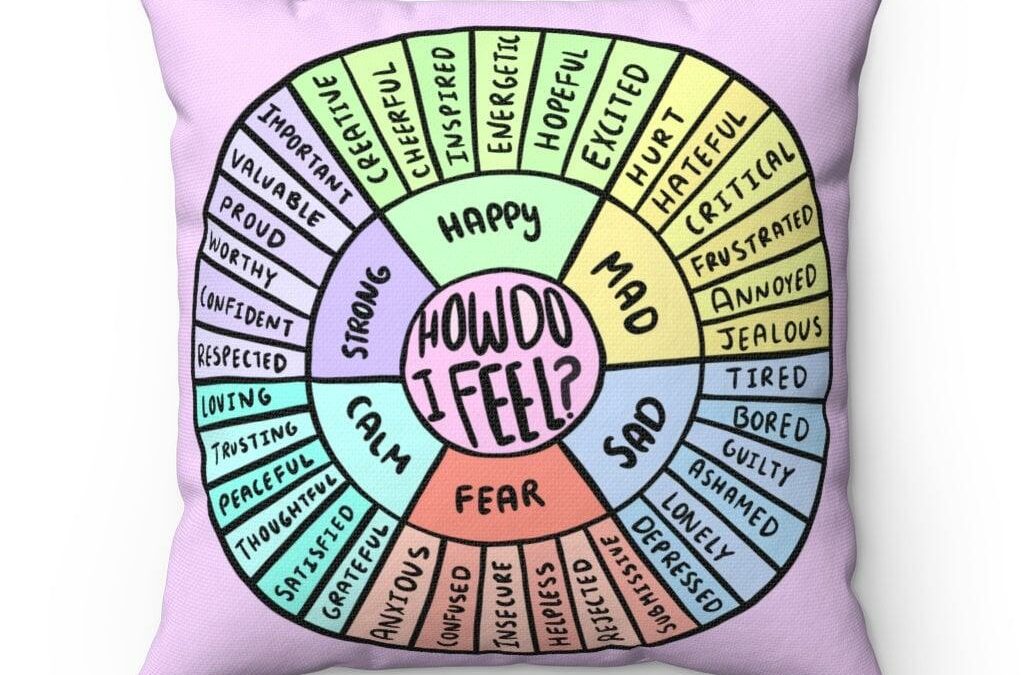
By Mansi Parekh
Understanding Emotional Regulation
The basic principle behind emotion regulation is to teach us how to be comfortable and accept our emotions so that when we are emotionally heightened, we can choose how we react to our situations instead of having emotions chosen for us.
Understanding emotional regulation is crucial for parents as it includes managing and responding to emotions more healthily by creating a positive and nurturing environment for children and shaping their emotional well-being and overall development.
Importance of Emotional Regulation
Emotional regulation can assist parents in fostering secure attachment, building resilience, and promoting healthy emotional expression and regulation in children with the ability to handle stress, frustration, and other emotional meltdowns effectively. The counsellor and play therapist at Crossroads Collective provide parenting support and psychoeducation about parenting styles, strategies to manage emotions, and co-parenting for effectively managing emotional meltdowns.
Benefits for Parents and Children
Research has proven that these techniques improve mental well-being and effectively resolve conflict for parents.
It has been evident in increasing stress management skills and enhancing emotional intelligence for children.
Techniques of Self-Regulation
Self-regulation involves adopting mindful practices, such as deep breathing exercises, meditation, and journaling, to manage personal emotions and reactions.
It also encompasses setting boundaries, seeking social support, and engaging in physical activities to promote emotional well-being and stability.
Techniques for Modeling Emotional Regulation
- Validation – it is important to validate their feelings, respond with empathy and provide three possible reasons why the child may be feeling that way to validate their emotions completely.
- Role Modeling – Children look to their parents for reactions and responses, so modelling positive behaviour can have a powerful and positive impact on the children’s behaviour, whether it is breathing with the children, engaging in mindful stretches, going for a walk, or other relaxation activities.
- Practicing delayed reactions – encourage children to pause before they react, as these pauses would help children’s heightened emotions or a flight-fight-freeze response. So, starting with modelling a calm state and support with problem-solving.
- Labelling Emotions – It can be hard for children to express their feelings, especially if they don’t know the emotion they’re experiencing. Having feeling wheels handy can help you navigate the many emotions your children may feel. Feeling wheels are also a great way to help children learn and understand emotion vocabulary and that we can feel more than one feeling. Try asking them what they’re feeling or have them point to the feeling on the wheel to help them learn how to label their emotions independently, especially more than one.
Conclusion
Checking in regularly about your child’s feelings will help keep communication open, and remember you are not alone as a parent. Not all strategies may be the right fit because everyone is different, but support is available for yourself and your family through Crossroads’ front door with just a call (604-532-5340). Crossroads Collective has culturally diverse play and art therapists who are trained professionals in helping and assisting children, parents, and families manage emotional regulation using Play-based Cognitive Behaviour Therapy and Dialectical Behaviour Therapy.
References
- Fassbinder, E., Schweiger, U., Martius, D., & Arntz, A. (2016). Emotion Regulation in Schema Therapy and Dialectical Behavior Therapy. Frontiers in Psychology, 7. https://doi.org/10.3389/fpsyg.2016.01373.
- Palmer, A. R., Labella, M., Plowman, E. J., Foster, R., & Masten, A. S. (2020). Parental Emotion Regulation Strategies and Parenting Quality Predict Child Internalizing Symptoms in Families Experiencing Homelessness. Social Development (Oxford, England), 29(3), 732. https://doi.org/10.1111/sode.12435.
- Thümmler, R., Engel, M., & Bartz, J. (2022). Strengthening Emotional Development and Emotion Regulation in Childhood—As a Key Task in Early Childhood Education. International Journal of Environmental Research and Public Health, 19(7). https://doi.org/10.3390/ijerph19073978.

